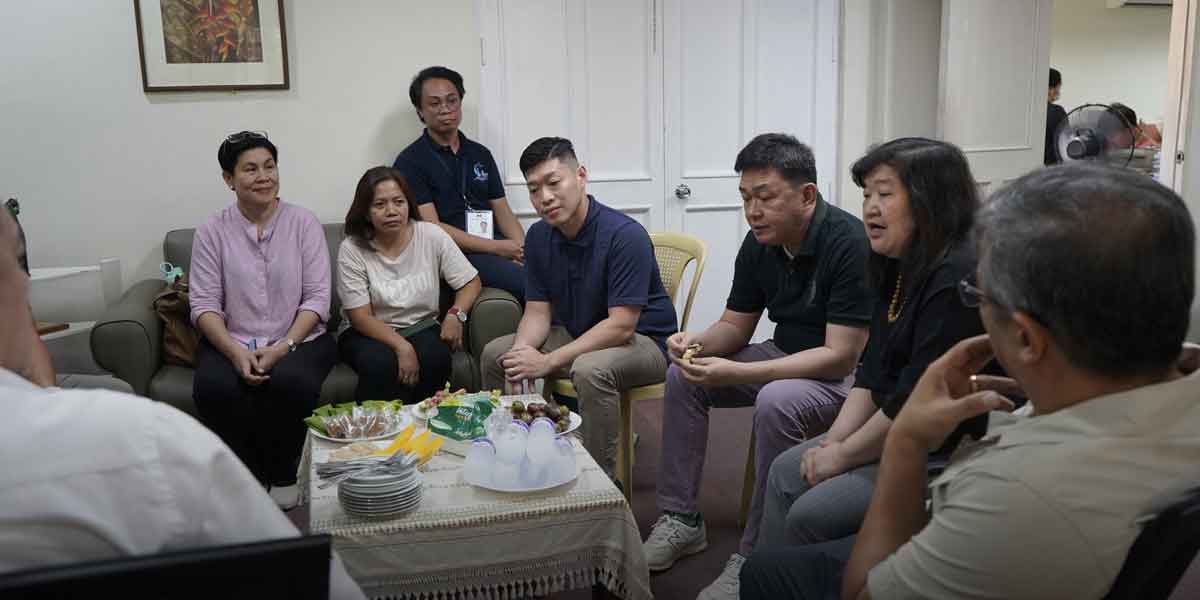 By Modesto P. Sa-onoy
By Modesto P. Sa-onoy
Senator Vicente Sotto III insisted that the Congress cannot change the criminal nature of the Libel Law, because the Ten Commandments provided “thou shall not bear false witness against thy neighbor”. He insinuates that the present Libel Law in the Philippines is also etched on a rock and therefore to change something on it would be a violation of God’s law.
But because the Ten Commandments did not say what will be the punishment for bearing false witness, the senator did not cite a passage where the Lord decreed the penalty, like stoning of an adulteress. I also wonder why the senator did not invoke stoning for women who are parading their adultery in the newspapers and television.
Since the senator appears to be biased by invoking the Ten Commandments when it suited him, we should not be bound by his interpretation of God’s law. Anyway, society and laws evolve even when if there is a direct and specific decree from God, like “thou shall not steal”. Thus, politicians and corrupt officials of government design laws and systems so they are not punished here on earth.
And that is what other legislators did, propose laws to suit the situation and social norms.
House constitutional amendments committee chairman Rufus Rodriguez filed House Bill 7010 that seeks to amend Republic Act 10175 or the Cybercrime Prevention Act of 2012, arguing that the 12-year prescription period being applied on the law is too long. In ordinary libel crime, the prescription period is only one year.
“RA 10175 did not provide for any prescription for punishable acts in said law. The Department of Justice used in court RA 3326, which provides that for any other offenses punishable by imprisonment of six years or more, the prescription period is 12 years,” Rodriguez said.
A Manila regional trial convicted Maria Ressa and former writer-researcher Reynaldo Santos Jr. of Rappler in a cyber libel case in the complaint filed by businessman Wilfredo Keng.
Rodriguez shared the opinion of retired Supreme Court senior associate justice Antonio Carpio that the 12-year prescription period for cyber libel cited by the judge was the “overriding issue” in the case.
The congressman, a former law dean, noted that there have been differing opinions on when the crime of cyber libel prescribes.
“Some legal experts argue that since the article involved in the Ressa-Santos case was published in May 2012, then the alleged crime had prescribed in May 2013. If it was republished in February 2014, then the complainant had only until February 2015 to file a complaint. The case was filed in court on Feb. 5, 2017,” Rodriguez explained.
He said Far Eastern University law dean Mel Sta. Maria cited the ruling of the Supreme Court in upholding the constitutionality of the Anti-Cyber Crime Law, that cyber libel “is not a new crime” since the Revised Penal Code already punishes libel, whose prescription period is only one year.
They argued that since cyber libel is not a new crime, then the one-year prescriptive period applies to it and that the prescriptive period under the Penal Code was not changed by the Anti-Cyber Libel Law.
Rodriguez also pointed out that the Integrated Bar of the Philippines President Egon Cayosa has called for the need to clarify the laws in view of questions raised regarding their correct interpretation.
Thus, Rodriguez said his bill would amend the Anti-Cyber Crime Law to provide that all acts punishable under the statute would prescribe in three years from the commission of the offense, except for cyber libel, which would lapse in one year from the date of publication of the article.
This proposal would clear the prescriptive period of a republished article even if the republication were made to correct an error. This was the meat of contention and the court believed that a republication is a “new publication.”
The court said that Cybercrime Prevention Act “does not provide its own prescriptive period,” thus the provision of the law on prescriptions for violations penalized by special acts or Act No. 3326,” applies. The court used the 12-year period.
However, FEU Law Dean Mel Sta Maria said that when the Supreme Court reviewed the constitutionality of the cybercrime law, it held that cyber libel “is not a new crime but merely provides a manner of committing an already existing offense.”





















